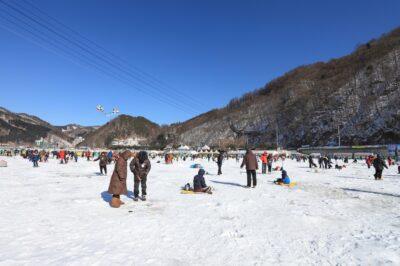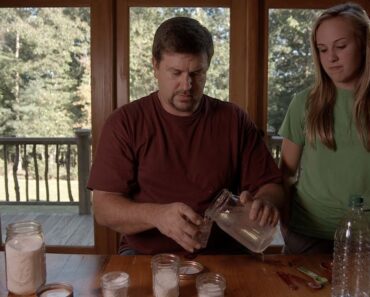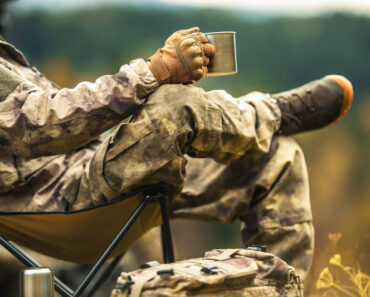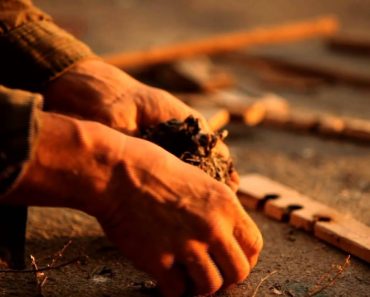
When it comes to survival, few skills are as poetic—or practical—as fishing. The age-old adage “Give a man a fish, and you feed him for a day; teach a man to fish, and you feed him for a lifetime” holds even more weight when the world around you is encased in ice and snow.
For off-grid preppers and survivalists, cold-weather fishing isn’t just a means to an end; it’s a lifeline. Mastering the art of fishing in winter is akin to unlocking a freezer stocked with nature’s protein—if you know where and how to cast your line.
The Ice Chest of Nature: Why Winter Fishing is Worth the Effort
Winter fishing offers survivalists a unique advantage: fish are less active and, therefore, easier to catch. They gather in predictable spots, conserving energy in cold waters. Unlike in the warmer months when fish scatter, winter narrows down your options, making your efforts more targeted.
For preppers, fish are a rich source of protein, omega-3 fatty acids, and essential nutrients. They can supplement limited food supplies and diversify your diet in a survival situation. Think of cold-weather fishing as your backup pantry. This resource requires no electricity and restocks itself if you’re patient and skilled.
Where to Start: Finding Fish in Cold Weather
Locating fish in winter can feel like searching for treasure under a frozen sea. But with the proper knowledge, it becomes less of a gamble and more of a calculated hunt.
Know the Waters
Whether you’re fishing in an iced-over lake or a partially thawed river, start by understanding the environment. In winter, fish tend to seek stable conditions where they can conserve energy.
- Lakes: Fish congregate in deep basins where the water is warmer, especially near underwater structures like rock piles, fallen trees, or submerged vegetation.
- Rivers and Streams: Look for slow-moving sections where fish can rest without fighting currents.
Watch the Weather
Cold snaps can push fish deeper, while slightly warmer days may bring them closer to the surface. A barometer can be your best friend; fish often bite more actively as pressure drops before a storm.
Gear Up: Tools for Survival Fishing in Winter
Fishing in winter isn’t as simple as tossing a line and waiting. It requires specialized gear and techniques to ensure success—and survival.
1. Ice Fishing Essentials
If your waters are frozen over, you’ll need:
- An Ice Auger or Chisel: For cutting through the ice and creating fishing holes. The ice should be at least 4 inches thick to support your weight safely.
- Ice Rod and Reel: These shorter rods offer better control in confined spaces.
- Tip-Ups: Set-and-forget devices that alert you when a fish bites—ideal for multitasking.
2. Open Water Tactics
If the water isn’t completely frozen, traditional fishing gear will suffice, but you’ll need cold-weather adjustments:
- Light Line and Small Hooks: Fish are sluggish in winter, so subtle presentations work best.
- Bait: Live bait, like minnows or waxworms, is often more effective than lures in cold water.
3. Survival Add-Ons
In an actual off-grid scenario, supplement your kit with:
- DIY Gear: A strong branch can serve as a makeshift rod, and paracord can double as a fishing line.
- Net or Spear: These tools can yield faster results if fish are visible in shallow water.

Avoid noisy crowds, stay quiet and cautious—fish under the ice are easily spooked.
Techniques: How to Catch Your Winter Meal
Fishing in winter is a blend of patience and precision. Think of it as a game of chess… one where the stakes are your next meal.
Keep It Slow
Fish conserve energy in cold water, making them less likely to chase fast-moving bait. Use a slow, deliberate jigging motion to entice bites. Imagine luring a sleepy predator—calm and subtle movements win the day.
Focus on Depth
In winter, most fish stay close to the bottom. Use a depth finder if you have one, or experiment by gradually lowering your bait until you find the sweet spot.
Stay Stealthy
Fish are skittish in winter, especially under the ice. Avoid stomping or creating excessive noise that could scare them away.
Protecting Yourself in Cold Weather
Fishing in winter is not without its dangers. Treat the cold as both an adversary and a teacher—it demands respect but rewards preparedness.
- Dress for Success: Layer up with moisture-wicking and insulated clothing. Don’t forget gloves and waterproof boots.
- Check the Ice: Carry an ice pick or rope in case of emergencies, and never fish alone.
- Hydrate and Fuel Up Cold weather can mask dehydration. Bring plenty of water and high-energy snacks.
The Survivalist’s Payoff: Processing and Storing Your Catch
Once you’ve landed a fish, the work isn’t over. Properly cleaning and storing your catch ensures you get the most out of your efforts.
- Field Dressing: Remove the guts immediately to prevent spoilage.
- Preservation: You can store fish directly on the ice if temperatures are below freezing. Otherwise, smoke or salt your catch for more extended storage.
Final Cast: Fishing for Survival and Resilience
Cold-weather fishing is more than a skill—it’s a metaphor for survival. It teaches patience, adaptability, and resourcefulness. Like a well-set tip-up waiting for the tug of a fish, survival requires preparation and readiness to seize opportunities when they arise.
For off-grid preppers and survivalists, fishing in winter isn’t just a way to survive; it’s a way to thrive. With every pull of the line, you’re not just catching a meal—you’re reaffirming your ability to endure, adapt, and flourish, even when the world turns cold. So grab your gear, find your spot, and let the ice chest of nature provide.
.


























